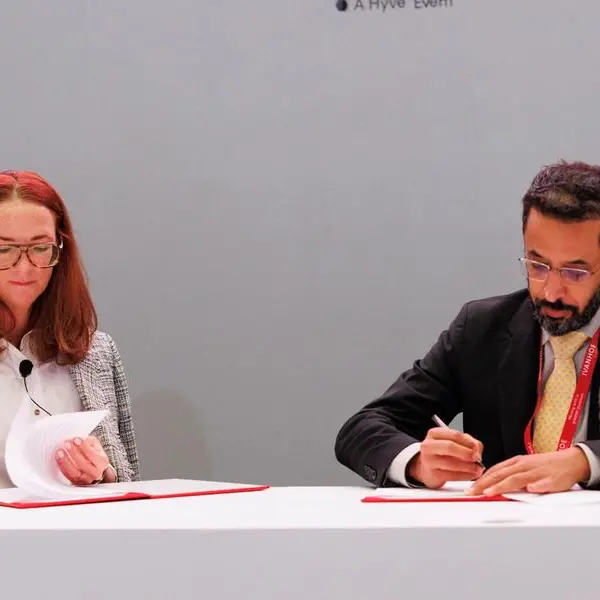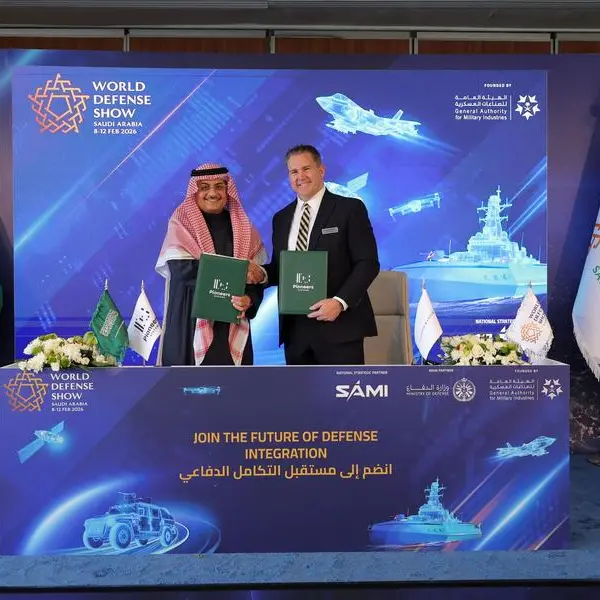PHOTO
On International Mother's Day, Western Union recognizes Migrant Women Moving, Sending and Receiving
Dubai, UAE, March 21, 2015 For this year's International Mother's Day , The Western Union Company, a leader in global money transfer services, recognizes the economic impact that international migrant women are having on both the global economy and their home economies as they cross borders for new opportunities.
As a company serving women, who represent nearly 51 percent of its customers sending cross-border money transfers, Western Union celebrates the economic power of women, who comprise almost 50 percent of international migrants and remit 50 percent of the World Bank's estimated USD582 billion in global remittances.
Based on analysis of global trends, Western Union said women send a greater percentage of their wages, while sending the same amounts as men. Both men and women primarily send to women (about two-thirds of receivers are women[1]), reinforcing the importance of women as the core of home financial management.
Jean Claude Farah, President, Middle East, Africa, Asia Pacific, Eastern Europe & CIS, Western Union said, "Money flows globally are driven increasingly by women and it's time to recognize the significant role women play in enhancing economic development globally by supporting the financial needs of their families and the community at large through their remittances. On the occasion of International Mother's Day, we are proud to recognize migrant women for their hard work and commitment in supporting their families. Across the GCC we see a large number of working women coming from a wide range of countries, many of these are mothers themselves or are supporting parents back home."
Women are Migrating as Much as Men
Today migrant women represent 48 percent of all international migrants and are finding jobs in multiple sectors and disciplines or starting their own businesses, according to the United Nations[2], dismissing some misconceptions that women were "second wave" migrants, traveling only as part of a family or once relatives have established themselves in a new home. Whereas men have historically migrated to industrialized economies for both manual labor and technical or professional jobs, today women workers are migrating to countries with strong service-based economies where they will have greater opportunity. The proportion of women to men migrants significantly varies by country and can be as high as 70 - 80 percent in some cases[3].
Women Senders Remit More Out of Their Wages and Women Receive the Bulk of Remittances
Female international migrants send approximately the same total amount of remittances as their male counterparts, sending a higher proportion of their income, even though they generally earn less than men, according to International Organization of Migration (IOM)[4]. The IOM states that women usually send money more regularly and for longer periods of time.
Women international migrants are also more likely than men to act as a safety net for families back home during emergencies and bad economic times. Additionally, when women send international remittances, these women gain more autonomy and negotiating power within the overall family1.
According to the United Nations1, international migrant men and women prefer to send remittances to women (two-thirds), reinforcing the global finding that women are the household financial managers. Studies show international women senders and receivers channel remittances in ways that directly benefit the family, including food, education, healthcare, housing and savings, while men remittance receivers tend to spend slightly more on the consumption of goods, according to Western Union analysis. These facts were also borne out by a previous Western Union research paper which looked at the growing importance of women migrant workers in the GCC.[5] The study in the UAE found that women migrants spend their earnings differently than men:
In 2008 the study found that over 12 months, the mean remittances of female expatriate workers in Dubai were almost AED 2,000 more than the remittances of male expatriates.
Women tend to allocate more resources to support family living expenses and human capital, compared with their male counterparts, who tend to focus on building physical capital.
Women are also more likely to act as a safety net for their family back home during emergencies and bad economic times. Some 52 per cent of female expatriates in Dubai allocate a portion of their overall remittances for such eventualities, compared with just 5 percent of all expatriate workers.
Greater Access to Financial Services Critical to Empowering Women
Jean Claude Farah reiterated Western Union's support for migrant women on International Mother's Day, noting their courage and dedication. "Greater access to financial services is critical to advancing the financial inclusion and literacy of women within the global economy, particularly with the use of new technologies - such as mobile," he said. "The public and private sectors around the world have a collective role to drive for real inclusion, and Western Union is distinctively positioned to provide access for banked, under-banked and un-banked international remittance senders and receivers, as well as to facilitate rapid payments for cross border trade for small and medium enterprises."
"We have a responsibility to tailor services for a growing and influential group of international workers," said Jean Claude Farah. "Western Union offers nearly half a million Agent locations, and we are improving choices, with the goal of allowing people to send money any time, any way and (almost) anywhere on earth, through an array of pay-in options such as cash, bank account, debit, credit, prepaid, online and mobile wallet."
Migrant Women Gain in Financial Transaction Sophistication
"Women have increased their participation with banks around the world as places to send and receive money," Jean Claude added, "although we find the majority of Western Union money transfer customers still prefer cash due to convenience and accessibility." According to the World Bank, 46.6 percent of women globally have an account at a formal financial institution (vs. 54.5 percent of men). However, in developing economies, women are 8 percent less likely to have an account than men. Further, women have narrowed the gender gap in their financial practices as 13.4 percent of women use electronic payment methods to make payments (vs. 15.6 percent of men) and 21 percent of women saved money at a financial institution (vs. 23.9 percent of men).
The World Bank[6] also found that women are rapidly approaching parity with men when it comes to sending and receiving money. Nearly seven percent of women use their bank accounts to receive remittances (vs. 7.6% of men) and six percent of women use their account to send remittances (vs. 8.0% of men). Mobile phones are gaining popularity with nearly three percent of women to receive money (vs. 3.5% of men), and nearly two percent of women use their mobile phone to send money (vs. 2.7% of men).⁶
About Western Union
The Western Union Company (NYSE: WU) is a leader in global payment services. Together with its Vigo, Orlandi Valuta, Pago Facil and Western Union Business Solutions branded payment services, Western Union provides consumers and businesses with fast, reliable and convenient ways to send and receive money around the world, to send payments and to purchase money orders. As of December 31, 2014, the Western Union, Vigo and Orlandi Valuta branded services were offered through a combined network of over 500,000 agent locations in 200 countries and territories and over 100,000 ATMs and kiosks. In 2014, The Western Union Company completed 255 million consumer-to-consumer transactions worldwide, moving $85 billion of principal between consumers, and 484 million business payments. For more information, visit www.westernunion.com.
[1] International Organization of Migration (IOM) and United Nations International Research and Training Institute for the Advancement (UN-INSTRAW) 2007; IOM et al., 2007
[2] UN-INSTRAW
[3] Linking Women Remitters & Senders to Financial Services, Women's World Banking, 2011
[4] IOM Report 2013
[5] Western Union Research Paper on Women Migrants, Remittances and their impact in GCC Region, 2013
[6] World Bank Report 2011
⁶ Financial inclusion by gender. (2011) World Bank
© Press Release 2015




















